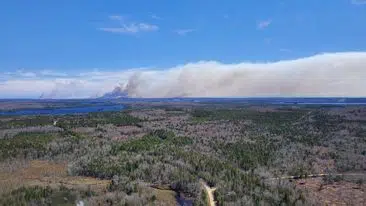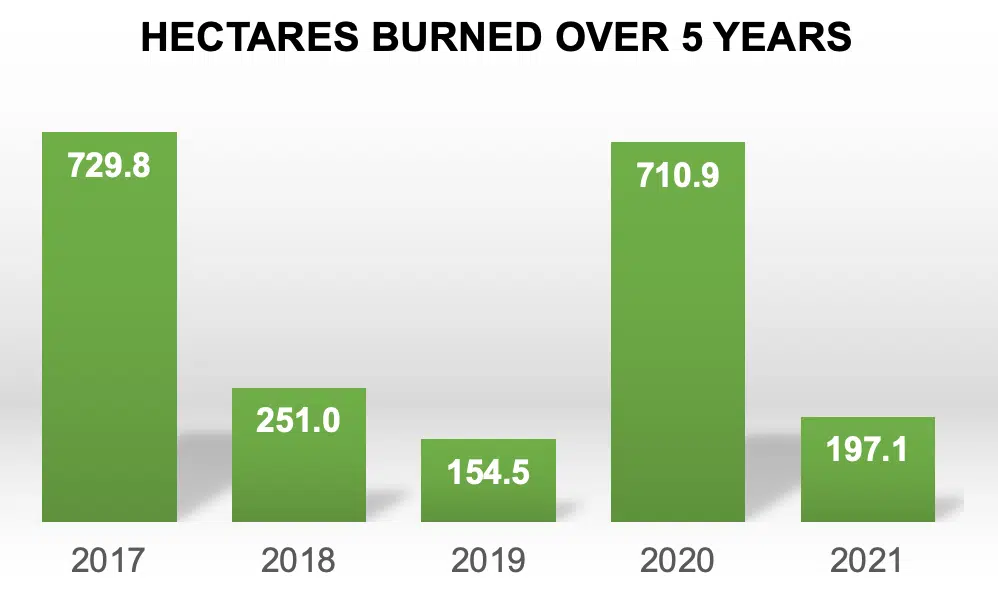
Wildfire season in Nova Scotia wrapped up on October 15 and the Department of Natural Forests and Renewables is reporting it was an above-average season in terms of hectares burned.
Between April 1 and October 15, 152 wildfires broke out in Nova Scotia burning a total of 3,384 hectares of forests. The average number of hectares burned over the previous five years was just 705 hectares per year, showing this year’s wildfire season was one of the most impactful in recent years.

Online DNR lists figures on hectares burned during wildfire season as far back as 2006, and the most impactful year on record was 2008 in which 2696 hectares burned, which works out to 80 per cent of what burned this year.
Wildfire Prevention Officer Kara McCurdy however says upon further analysis of the data this season may not appear as bad as it seems. “The biggest thing this year is we had one fire that burned 3,199 hectares down in Yarmouth county that really drove our numbers up,” McCurdy said.
The fire McCurdy is referring to broke out near Horseshoe Lake in mid-May and lasted nearly five days, McCurdy says the remote location of the fire was the primary reason it was able to get so large.
If you remove that fire from the data the other 151 wildfires burned a little over one hectare each on average. It also would lower the total number of hectares burned down to 185, which falls more closely in line with the figures reported in recent years.
McCurdy says that is something everyone involved in wildfire prevention should take pride in as she says this year provided ideal conditions for wildfires so it was expected that numbers would be even higher.
The Department of Lands and Forests is now in the process of finalizing its annual report on wildfire activity which will then be used to assist in developing future wildfire prevention policies.





Comments